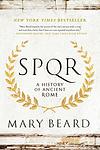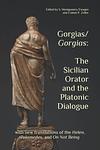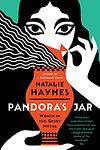The Greatest "Nonfiction, Ancient History" Books Since 1980
Click to learn how this list is calculated.
This list represents a comprehensive and trusted collection of the greatest books. Developed through a specialized algorithm, it brings together 284 'best of' book lists to form a definitive guide to the world's most acclaimed books. For those interested in how these books are chosen, additional details can be found on the rankings page.
Genres
Ancient History is a category of books that focuses on the study of human civilizations and societies that existed in the distant past, typically before the Middle Ages. This genre encompasses a wide range of topics, including the rise and fall of empires, the development of religions and cultures, the evolution of technology and science, and the political and social structures of ancient societies. Ancient History books provide readers with a glimpse into the lives and experiences of people who lived in a vastly different world than our own, offering insights into the origins of modern civilization and the forces that shaped our world today.
Countries
Date Range
Reading Statistics
Click the button below to see how many of these books you've read!
Download
If you're interested in downloading this list as a CSV file for use in a spreadsheet application, you can easily do so by clicking the button below. Please note that to ensure a manageable file size and faster download, the CSV will include details for only the first 500 books.
Download-
1. The Marriage Of Cadmus And Harmony by Roberto Calasso
"The Marriage of Cadmus and Harmony" is a unique exploration of Greek mythology. The narrative follows the journey of Cadmus, a Phoenician prince, and his marriage to Harmony, a goddess. The book delves deep into the complex and rich tapestry of Greek myths, presenting them as a continuous and ever-evolving story. It offers fascinating insights into the gods, heroes, and monsters of ancient Greece, while also drawing connections to modern life and thought.
-
2. Sapiens: A Brief History of Humankind by Yuval Noah Harari
This book provides a comprehensive exploration of the history of the human species, tracing back from the earliest forms of Homo Sapiens to the modern day. It delves into evolutionary biology, the development of cultures and societies, and the rise of major ideologies and technologies. The book also discusses the future of the species, posing thought-provoking questions about our roles and responsibilities in a rapidly changing world.
-
3. Popol Vuh: The Mayan Book of the Dawn of Life by Dennis Tedlock
This book provides a comprehensive English translation of the Popol Vuh, the ancient Mayan creation myth. The narrative covers the genesis of the world, the adventures of the Hero Twins, the creation of humans, and the establishment of the Mayan civilization. The book also includes extensive commentary and notes, providing readers with a deeper understanding of the cultural and historical context of the Mayan myth.
-
4. Collapse by Jared Diamond
"Collapse" is an exploration of why certain societies throughout history have thrived while others have deteriorated and collapsed. The book delves into environmental problems, climate change, rapid population growth, and unwise political decisions as factors that contribute to the downfall of a civilization. The author uses examples from history such as the Mayans, the Vikings in Greenland, and modern examples like Rwanda and Haiti, to illustrate his points. It serves as both a historical analysis and a warning for modern societies to learn from the past in order to avoid a similar fate.
-
5. Cleopatra: A Life by Stacy Schiff
"Cleopatra: A Life" by Stacy Schiff is a detailed biography of one of the most famous and enigmatic figures in history, Cleopatra VII of Egypt. The book explores her life from childhood to her reign as queen, her relationships with Julius Caesar and Mark Antony, and her eventual downfall. Schiff uses primary sources and historical records to paint a vivid picture of Cleopatra's world and dispel many of the myths surrounding her life. The book also delves into the political and cultural context of ancient Egypt and Rome, providing a fascinating glimpse into a bygone era.
-
6. A History of the World in 100 Objects by Neil MacGregor
This book offers a unique perspective on world history, telling the story of humanity through the examination of 100 man-made objects. The author, a museum director, uses items from the British Museum, ranging from a 2 million-year-old Olduvai stone cutting tool to a contemporary credit card, to explore various themes such as trade, religion, art, science, and politics. The book provides a fascinating lens through which to view the evolution of human civilization.
-
7. Rubicon by Tom Holland
This historical narrative delves into the tumultuous period of the late Roman Republic, chronicling the rise and fall of some of its most iconic figures, such as Julius Caesar, Cicero, and Augustus. The book captures the political intrigue, military campaigns, and civil unrest that led to the demise of the Republic and the birth of the Roman Empire. Through vivid storytelling, it explores the complex interplay of personalities and events that shaped the course of Western civilization, offering a detailed look at the power struggles and societal transformations of ancient Rome.
-
8. The Great Leveler : Violence And The History Of Inequality From The Stone Age To The Twenty First Century by Walter Scheidel
This book delves into the historical patterns of inequality, arguing that significant reductions in inequality have only ever been brought about by cataclysmic events, which the author terms as the "Four Horsemen": war, revolution, state collapse, and plague. Through a comprehensive examination of societal structures from the Stone Age to the modern era, it presents a compelling case that peaceful reforms have rarely led to lasting decreases in inequality. The work challenges readers to confront the uncomfortable reality that significant improvements in equality have often been forged in the crucible of immense human suffering, thereby questioning the prospects for achieving future equality without such extreme catalysts.
-
9. Women & Power: A Manifesto by Mary Beard
This book is a compelling exploration of the history of women in power, examining the cultural underpinnings of misogyny from ancient times to the present day. It argues that women have always been excluded from positions of power, and that this exclusion is deeply ingrained in our collective psyche. The author uses examples from history, literature, and contemporary politics to illustrate her points, challenging readers to reconsider their own assumptions about gender and power. She also offers insights into how we can break down these barriers and create a more equitable society.
-
10. Spqr by Mary Beard
This book is a sweeping historical narrative that delves into the heart of ancient Rome, exploring its rise from an insignificant village in central Italy to a world-dominating superpower that lasted for centuries. The author, a renowned classicist, examines not just the famous emperors and battles, but also the lives of the everyday people, the political and social structures, and the complexities of Roman culture. Through a blend of historical analysis, anecdotal evidence, and a fresh perspective, the book challenges preconceived notions about Roman history and provides a nuanced understanding of how this vast empire's legacy continues to influence the modern world.
-
11. Gorgias/Gorgias : The Sicilian Orator And The Platonic Dialogue by Coleen P. Zoller, Jurgen R. Gatt, S. Montgomery Ewegen
This book provides a comprehensive analysis of the Platonic dialogue centered on the figure of Gorgias, a renowned Sicilian orator and sophist. It delves into the philosophical conversations between Socrates and Gorgias, along with other interlocutors, exploring themes such as rhetoric, justice, and the nature of the good life. The text examines the intricacies of Socratic dialectic and the contrast between philosophical inquiry and the art of persuasion practiced by sophists. Through this exploration, the book sheds light on the enduring questions about the relationship between power, knowledge, and ethics in the context of human discourse and action.
-
12. Pandora's Jar by Natalie Haynes
"Pandora's Jar" delves into the world of Greek mythology from a fresh perspective, focusing on the often-misrepresented stories of women within these ancient tales. The book reexamines the narratives of figures such as Medusa, Helen of Troy, and the titular Pandora, challenging the traditional views that have frequently cast them as villains or victims. Through a combination of scholarly analysis and engaging storytelling, the author brings to light the complexities of these female characters, exploring their roles and significance in a way that resonates with contemporary discussions on gender and power. The book serves as both a reclamation of these mythological women's stories and a critique of how their legacies have been shaped by centuries of retelling.
Reading Statistics
Click the button below to see how many of these books you've read!
Download
If you're interested in downloading this list as a CSV file for use in a spreadsheet application, you can easily do so by clicking the button below. Please note that to ensure a manageable file size and faster download, the CSV will include details for only the first 500 books.
Download










